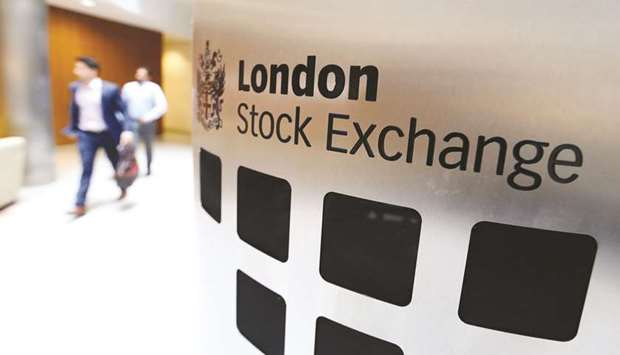Oil prices dived yesterday on demand fears as more nations go into lockdown to staunch the spread of the coronavirus, while stock prices attempted a modest rebound.
Both main oil contracts fell 5% for part of the day before clawing back some of their losses, extending this week’s meltdown to plumb four-month lows on virus-driven demand fears.
“The new lockdowns have since yesterday caused a carnage in the oil market,” said Bjornar Tonhaugen, head of oil markets at Rystad Energy.
“Oil demand will lose ground as a result of the new lockdowns. Prices now naturally decline on this grim prospect,” he added.
The drop in oil prices will increase the pain on oil companies. Exxon Mobil announced yesterday it was eliminating 1,900 US jobs as part of a cost-cutting drive necessitated in part by the impact of Covid-19 on oil prices.
Meanwhile, stocks were spared Wednesday’s bloodbath which saw losses of more than three percentage points in several major markets.
After spending part of the day in the red, European stocks moved higher in the afternoon after the European Central Bank signalled it would bolster its pandemic response in December.
“Traders took that as a cue to buy back into stocks,” said market analyst David Madden at CMC Markets UK.
Frankfurt ended the day 0.3% higher while Paris lost its gains going into the closing bell, as did London, which is outside of the eurozone. The FTSE 100 closed less than 0.1% down at 5,581.75 points and Frankfurt’s DAX 30 closed 0.3% up at 11,598.07 points, while Paris – CAC 40 ended less than 0.1% down at 4,569.67 points. The EURO STOXX 50 closed 0.1% down at 2,960.03 points.
“Despite no immediate change in policy at today’s meeting, this wasn’t a sign of the ECB being satisfied with the current environment,” said Jai Malhi, Global Market Strategist at J.P.
Morgan Asset Management.
“Equity markets have been struggling to cope with the risks posed by the renewed spike in infections...In December, pressure will be huge for the ECB to walk the walk. The major question remains – whether the tools available to the ECB will be enough to satisfy markets and support the economy through the pandemic.”
Spain’s IBEX underperformed, closing down 1% at a seven-month low.
Bank of Spain called for a more bold response from the European Union to help firms and households weather any deterioration in the Covid-19 crisis, warning of risks to the stability of the banking sector.
Europe’s tech sector rose 1.1% lifted by Dutch chip equipment supplier ASM International’s 6.5% gain as it raised its fourth-quarter guidance.
Yesterday’s moves follow a sharp sell-off in the previous session when Germany and France imposed nationwide restrictions – nearly as severe as the ones that drove the global economy this year into its deepest recession in generations – as coronavirus cases surged.
The ECB’s pledge step up stimulus sent the euro lower.
“The euro is trading a little softer in the aftermath of the meeting, as traders begin to speculate on whether we’ll see the bazooka in December, or something even more powerful,” said analyst Craig Erlam at online currency trading site Oanda.
European equities were hammered on Wednesday as the German and French governments unveiled tighter restrictions to curb soaring Covid-19 infection rates.
The moves followed weeks of exponentially rising new infections across Europe that forced governments to put fresh containment measures in place.
The deadly second wave could potentially spark another painful global recession, as businesses and economies buckle again under the restrictions, analysts warn.
“Risks of a double-dip recession are rising for the global economy,” said Agathe Demarais, global forecasting director at The Economist Intelligence Unit.
“A a second wave of the coronavirus pandemic is raging across Europe, prompting several countries, including heavyweights France and Germany, to re-impose stringent measures to contain the outbreak,” she told AFP.
Wall Street pushed higher meanwhile following data that showed the US economy posting the strongest recovery on record as it expanded by an annualised rate of 33.1% in the third quarter, according to government data.
However, compared with July-September of 2019, the third quarter contracted by 2.9% after falling by 9.0% year-on-year in the second quarter, according to the data.
The data are “akin to looking in the rear-view mirror, as the US economy is now slowing and the economic outlook deteriorating amid surging new cases of Covid-19 across almost all US states,” said UniCredit analyst Daniel Vernazza.
Oil major Royal Dutch Shell rose 3.6% on raising dividend after handily beating third-quarter profit forecasts.
This saw the energy sector rise more than 1% despite sliding oil prices.
Leading gains was the travel sector, posting its biggest intraday gain in over three weeks, as Flutter Entertainment jumped 8.3% on the possibility of entering the elite Euro STOXX 50 blue-chip index.]
The jump helped Ireland’s ISEQ log its best day since May.
In the busiest day for European reporting season, telecom stocks took a beating as Finnish telecom network equipment maker Nokia slumped 18.5% after it cut its full-year profit forecast.

Visitors pass a sign inside the main atrium of the London Stock Exchange Group headquarters. The FTSE 100 closed less than 0.1% down at 5,581.75 points yesterday.
